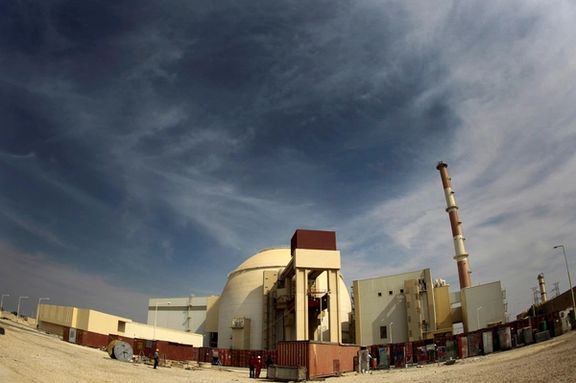Tehran releases explanatory note defending 60% enrichment

Iran has formally defended its enrichment of uranium to 60% purity in a public statement, insisting the activity is not prohibited under the Nuclear Non-Proliferation Treaty (NPT).

Iran has formally defended its enrichment of uranium to 60% purity in a public statement, insisting the activity is not prohibited under the Nuclear Non-Proliferation Treaty (NPT).
The explanatory note, released ahead of a key meeting of the IAEA Board of Governors, criticized the agency’s latest report for relying on “unverified” and “politically influenced” sources, saying the findings reflect a “departure from the principles of impartiality and professionalism.”
“Enrichment to 60% is not banned by the NPT, and all related activities are declared and verifiable,” said the statement published on the Atomic Energy Organization of Iran's website.
Iran further said that traces of uranium found at certain undeclared sites may be the result of sabotage or hostile actions, citing findings by its own security investigations.
The IAEA report, leaked to Western media late last month, concluded that Iran now possesses over 400 kg of 60%-enriched uranium—enough, if further enriched, to build approximately 10 nuclear weapons. The report also cited ongoing Iranian non-cooperation on safeguards and expressed “serious concern” over the country’s continued enrichment at levels with “no civilian justification.”
Iran pushes back against pressure
Iranian officials condemned the IAEA’s findings. Deputy Foreign Minister Kazem Gharibabadi said the report was based on “fabricated Israeli intelligence” and aimed at reopening matters previously closed under a 2015 resolution. He accused the agency of acting under political pressure from the United States and European powers.
In a phone call last week with IAEA Director General Rafael Grossi, Foreign Minister Abbas Araghchi called on the agency to “reflect realities” and warned that any politically driven action by the IAEA Board would be met with a firm response. “Iran will react strongly to any violation of its rights,” Araghchi said in a separate post on X. “The responsibility lies solely with those misusing the agency to gain political leverage.”
Tensions rising ahead of IAEA board vote
The IAEA board is expected to convene next week, with diplomats telling Reuters the United States and the so-called E3 — Britain, France, and Germany — plan to table a resolution formally declaring Iran in violation of its safeguards obligations. If adopted, it would mark the first such finding since 2005, a move that could pave the way for a referral to the UN Security Council and further sanctions.
Israel has accused Iran of being “fully committed” to obtaining nuclear weapons, with Prime Minister Benjamin Netanyahu’s office saying “there is no civilian explanation” for Iran’s current enrichment levels.
Iran, for its part, continues to insist that its nuclear program is strictly peaceful and has dismissed the possibility of negotiating over the principle of enrichment.
No deal without enrichment, Tehran says
In comments echoed by other senior Iranian officials, Parliament National Security Committee chair Ebrahim Azizi said enrichment is a “red line.” “There can be no negotiation over the principle of enrichment,” he said. “It is a matter of national sovereignty.”
Iran also criticized Western suggestions of a fuel consortium or a temporary freeze on enrichment. “Without recognition of our right to enrichment, no agreement will be possible,” said Alaeddin Boroujerdi, another senior MP.
Snapback and retaliation threats
The mounting tension comes as Western capitals also weigh triggering the so-called snapback mechanism under the 2015 nuclear deal, which would restore UN sanctions. Iranian hardline media warned that such a move would be seen as “blackmail” and would provoke a fundamental shift in Iran’s nuclear doctrine.
The conservative daily Khorasan said Iran “could produce 10 atomic bombs” and that its missile program should not be underestimated. It warned that activating the snapback would mean “Iran’s cooperation with the IAEA has yielded nothing.”